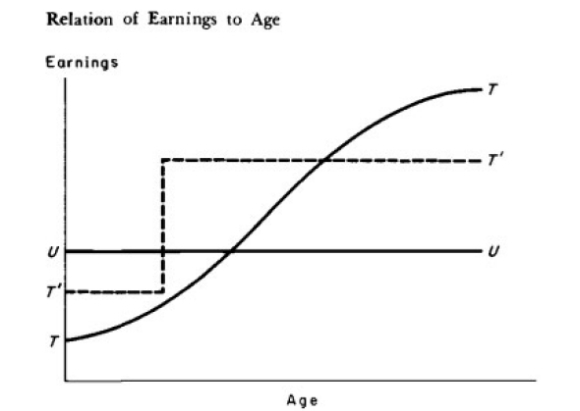“Capitalism isn’t perfect? Tell it to the graph!”
I’m really looking forward to reading Thomas Piketty’s book Capitalism in the Twenty-First Century. In the meantime, here’s a ridiculous encomium by David Auerbach in Slate. Auerbach can barely contain his glee that Piketty has exposed the “naivete, greed, and myopia” of modern economics.
Piketty may indeed pose a devastating methodological critique of economics (I hope he does!), but I’m not sure if I’m inclined to take Auerbach at his word.
1. Auerbach starts with this reassurance: “As a software engineer trained to trust nothing and verify everything, I can give no greater compliment to Piketty’s book than that it is backed by actual evidence, and mountains of it.” How lucky we are to have a brilliant software engineer who’s willing to take us inside the completely unrelated field of economics and enlighten us about who is right and who should be treated as a “pinata.”
2. At least he doesn’t try to hide his own biases. Here he throws off a casual reference to “the monetarist theory that influenced Paul Volcker, Alan Greenspan, Margaret Thatcher, and Augusto Pinochet.” This is the equivalent of calling Keynsianism “the theory that influenced Paul Krugman, Barack Obama, Nancy Pelosi, and Hitler’s economic guru.” Can we extend Godwin’s Law to include references to Pinochet?
3. And then he excerpts a conceptual graph (see below) from Gary Becker’s book Human Capital. According to Auerbach, the graph “purports to show that trained workers (T) make more money than untrained workers (U).” Graphs like these, Auerbach says, are “hot air”: “Any programmer who tried to sell me on the performance of a piece of code with charts like these would get thrown out of my office.” Has Auerbach never seen a conceptual graph before? Graphs like these aren’t meant to show “results” (as Auerbach claims they do). Instead, they’re meant to explain how a particular mathematical model might apply to the real world. They may be right, they may be wrong. But they expose the assumptions of the researcher. Becker may be wrong, but he’s certainly not presenting fake data as real. I wonder if Auerbach feels the same moral outrage at the use of the standard supply/demand chart…one of the most useful tools ever discovered.
I used to love Slate, but I’m increasingly embarrassed by their science and economics content.

